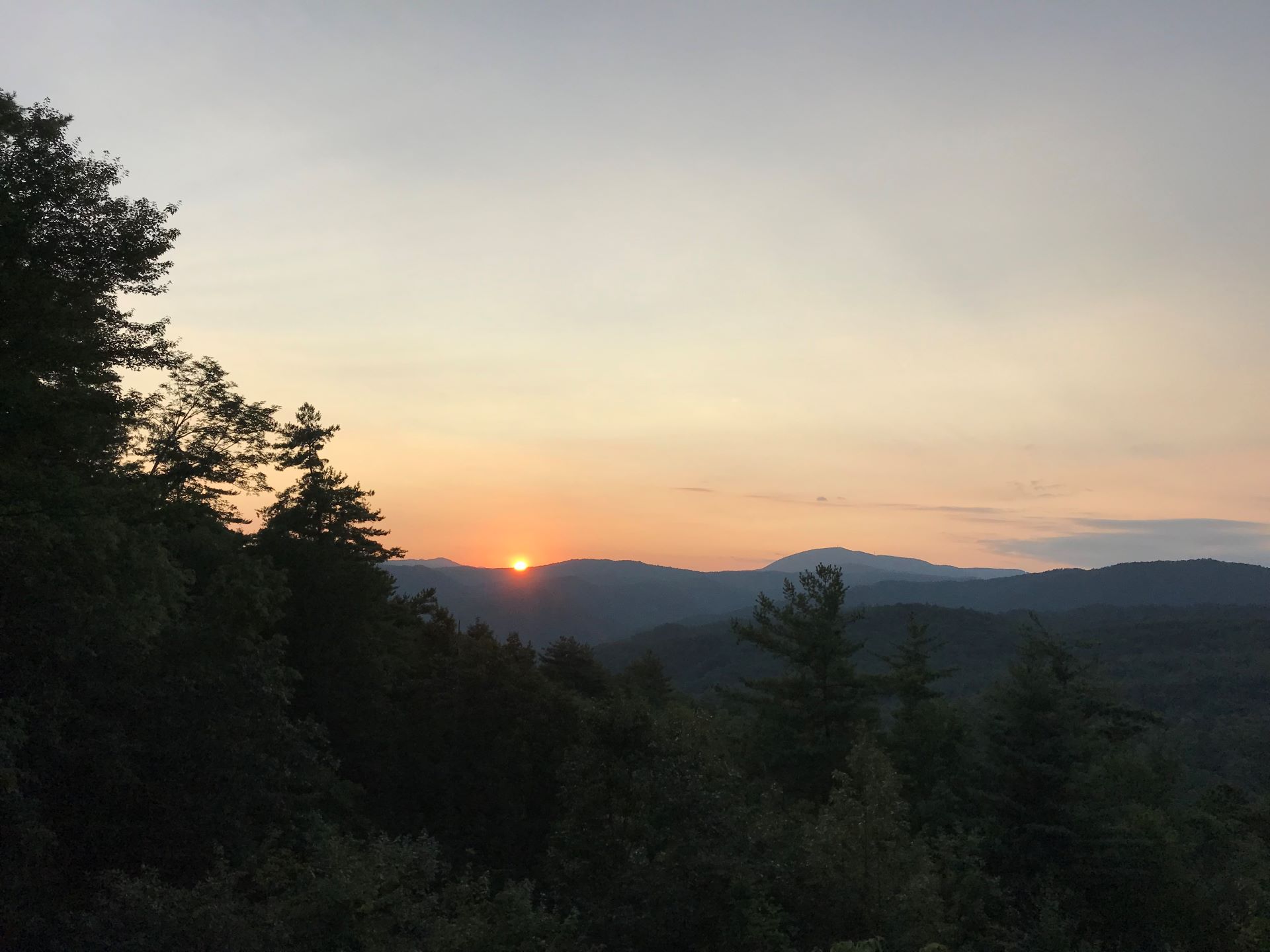Today everyone blames smartphones for the exploding disconnection from Nature.
Native Digitals, those 35 and younger, live reality through their screens rather than in the world. And the disconnection is getting worse: GenZ spends an average of 9 hours per day on their phones and prefer to stay at home.
But what if the disconnection started much further back, more than 50 years ago?
The suburbs finally get a break
Urbanization and the sprawl of suburbs around urban centers that chew up natural areas was thought to be the cause for a long time. But the cause is likely a ubiquitous feature of modern technology that every home contains: TV.
A fascinating article from 2017, How Modern Life Became Disconnected from Nature, explains a cultural research study that effectively pinpointed when the shift indoors began in the 1950s. (Thanks for sharing, Robin!)
The researchers posed the question: How has the human relation to Nature changed over the last 100 years?
Books, song and movies reveal the shift
Because they obviously can’t survey people from 100 years ago, they decided to examine the cultural products that were created then and now.
“Works of popular culture, we reasoned, should reflect the extent to which nature occupies our collective consciousness.” – Pelin Kesebir, Selin Kesebir
The team created a list of 186 nature-related words in four categories:
- General nature words: autumn, cloud, lake, moonlight
- Names of flowers: bluebell, edelweiss, foxglove, rose
- Names of trees: cedar, laburnum, whitebeam, willow
- Names of birds: finch, hummingbird, meadowlark, spoonbill
Then they searched databases to see how often these words appeared over time:
- English fiction books written between 1901 and 2000
- Songs listed as the top 100 between 1950 and 2011
- Storylines of movies made between 1930 and 2014
The conclusion:
“Across millions of fiction books, thousands of songs, and hundreds of thousands of movie and documentary storylines, our analyses revealed a clear and consistent trend: Nature features significantly less in popular culture today than it did in the first half of the 20th century, with a steady decline after the 1950s. For every three nature-related words in the popular songs of the 1950s, for example, there is only slightly more than one 50 years later.”
Follow the tech trends
Consider the primary tech trends:
- 1950s – TV became the most popular form of indoor and family entertainment
- 1970s – Video games took off
- 1990s – The internet (and algorithms) capture more and more leisure time
- 2000s – Cell phones begin widespread adoption
Has this trend changed since the study was published six years ago? Not likely.
The continuing increase in daily screen time across all age groups globally suggests Nature continues to shrink in our collective imagination and cultural conversation.
Maybe it’s time to document all the current Nature trends
At the same time, I continue to be surprised at the strident voices and movements I discover every time I search online for anything tech or Nature related.
- A Nature-positive approach as a framework among the G7 to protect Nature
- Yo-Yo Ma’s initiative Our Common Ground using music in nature to reunite us
- GenZ Luddite Club that favors “dumb” flip phones and reads books in parks
- An explosion of apps to remind and track our intentional outdoor experiences
- The introduction of “forest schools” to get kids comfortable outdoors
- The rise of all manner of “forest therapists” in forest bathing and wilderness therapy
- The focus on sustainability initiatives in many industries
- A vocal and growing activism for action on climate change, Nature protection and ecosystem sustainability at all levels
Lots of reasons to be hopeful.
But since hope is not a plan, take matters into your own hands.
Get yourself outside to relax, destress and drink in the wonder and delight of whatever Nature is available to you. Even a little bit of Nature is a potent elixir.
If you’d like a little help, my free email course Phone-Jacked: How to Take Back Control of Your Phone in 7 Days will be available in the next two weeks (or sooner).
Now, go wander outside!
Marsha
P.S. New to The Unplugged Club? Join us.
3 Resources for You
What Happens When We Reconnect With Nature A run-down of all the good benefits.
Planet Earth II | BBC Earth The ultimate in Nature eye candy.
Nerdy About Nature Passionate Canadian naturalist who packs fascinating facts into Instagram Reels.
2 Questions for You
Reflections, questions and ideas to break the digital spell.
1st Q: Do you intentionally seek out Nature-related articles, books, movies, songs?
2nd Q: What are your favorite Nature-related books and movies? (Help me build a list!)
Hit reply and let me know what you discovered this week. I’ll use some of your feedback in next week’s newsletter (first name only.)
1 Action for You
One small step to start the change.
Ask yourself what your favorite Nature-related book or movie triggers in you. Take time to seek that outside this week.
Hit reply, let me know how it goes and I’ll include feedback in next week’s newsletter.
Nature View

“At some point in life the world’s beauty becomes enough. You don’t need to photograph, paint, or even remember it. It is enough.” – Toni Morrison
